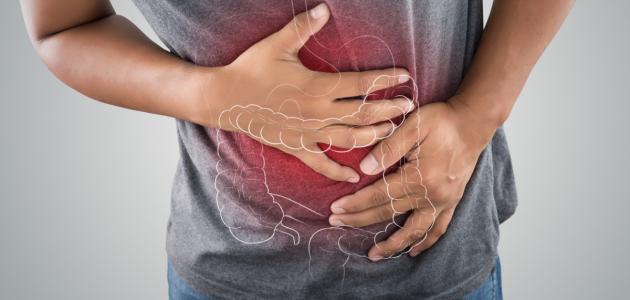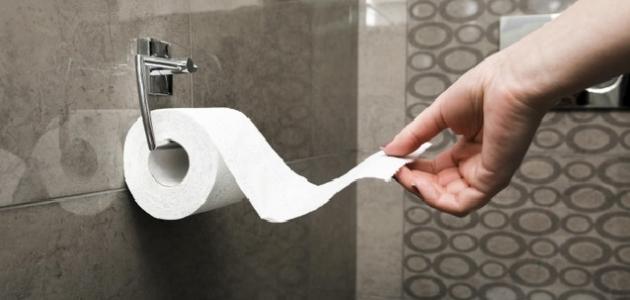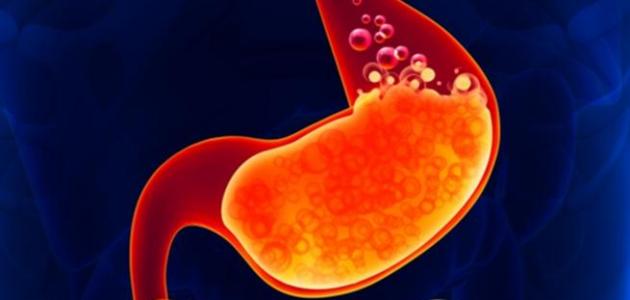Contents
diarrhea
According to the World Health Organization, diarrhea can be defined as passing loose or liquid stools three or more times a day. That is, at a rate that exceeds the number of natural excretions per person, and here it should be noted that excreting coherent stool without a significant change in its consistency and fluidity repeatedly during the day is not considered a diarrhea, as is the case for loose and soft stool in infants, which is not considered diarrhea accordingly, [1 ] It is worth mentioning that the diarrhea may be accompanied by some other symptoms in some cases, such as fever, abdominal pain, chills, nausea, and gas abdomen , vomiting, and the urgent need to go to the bathroom, and the presence of mucus or blood in the stool, [2] , usually assisted by a doctor With these symptoms to assess the condition of the victim and uncover the underlying causes of diarrhea,[3] Diarrhea can be classified into the following types: [3] [4]
- Acute diarrhea: , which often lasts for a short period of time, estimated at one to two days, and this period may increase slightly for some; However, acute diarrhea usually disappears on its own after this period, and acute diarrhea is often attributed to a viral infection. Rotavirus is the most common virus that causes acute diarrhea among children, while norovirus is the most common viral cause among adults, and bacterial infection is one of the common causes of traveler's diarrhea.
- Chronic diarrhea: , which often lasts for more than four weeks, and the causes of its infection may be due to the presence of some chronic health problems, the use of some medicines, the infection of intestinal parasites, or the exposure of the intestine to radiation therapy. These reasons are given in some detail later, and it should be noted that the persistence of diarrhea for a long time leads to the loss of a large amount of fluids by the body, and if this fluid is not replaced, then this leads to dehydration , which may pose a threat to the life of the injured. It was not treated, in particular, in children, the elderly, and people with weak immune systems. [5] [2]
Treating diarrhea
The person with diarrhea is usually cured within a short time on its own, usually without access to drug treatment, but in some cases the patient may need to obtain drug treatments for his condition, especially if it does not improve or his symptoms worsen over time, and it is useful to stop Diarrhea or alleviating its symptoms and preventing their exacerbation: Adjusting the diet and drinking more fluids and oral solutions to replace lost fluids, and medicines can be obtained to stop and relieve diarrhea, in addition to the medicines prescribed by the doctor to treat the disease or disorder that led to the incidence of diarrhea, and the appropriate treatment for diarrhea depends on many Factors, including the severity of diarrhea, the nature of the symptoms accompanying it, the patient’s age and general health: [6] [7]
Fluid replacement
Treatment of diarrhea begins by replacing the fluids lost by the body as a result of diarrhea to prevent or treat dehydration in the event that it occurs, [8] especially in cases that are accompanied by large quantities of watery stool; In this context, it should be emphasized that replacing lost fluids cannot stop diarrhea, nor does it treat the cause of diarrhea, but is only used to treat or prevent dehydration by replacing the body with lost fluids and salts. In general, it can be said that fluid replacement is possible by increasing the individual's consumption of various fluids such as: water and juices, or obtaining oral rehydration therapy (ORS) from pharmacies; They are solutions prepared so that they contain a studied and balanced ratio that covers the patient's need of water, sugar, and salts that he loses during diarrhea, and thus it is considered a better option than drinking the usual fluids, especially for children. [9][10]
It should be noted that the volume of solution used to replace lost fluids from the body depends on the severity of the dehydration that the patient suffers from. If the patient who clearly shows symptoms of dehydration or who passes watery stools needs more quantities of this solution compared to the patient who does not clearly show symptoms of dehydration or who is excreted less frequently, and mothers are usually advised to continue breastfeeding the child even during the period of administration The solution, while it is recommended to provide children and adults with quantities of water as they desire during their treatment with this solution, [11]And in the event that the victim vomits during treatment, it is advised to stop it for ten minutes, and then continue administering the solution, but in smaller quantities, and as we mentioned earlier, oral rehydration solutions are very safe; It can be administered to pregnant and breastfeeding women, and for the duration of treatment with oral rehydration, the solution should be continued as long as the victim has symptoms of diarrhea and dehydration. [12] But if the dehydration is very severe, a doctor or emergency worker should be referred immediately to receive replacement therapy for intravenous fluids. [9]
Anti-diarrhea
Anti-diarrhea includes the drugs given to stop diarrhea and relieve its symptoms, such as the urgent need to defecate or frequent defecation, without treating the underlying causes of infection, and here it must be noted that it is not recommended to use anti-diarrhea if the cause of the diarrhea is a bacterial infection or Parasitic, as frequent defecation helps the body to remove these pathogens of infection from the body, and in the context of talking about anti-diarrhea, it should be said that they stop diarrhea or reduce its severity in more than one way. Some of them reduce the movement of the intestine, which allows the body to absorb more water through them. Consequently, the hardness of the stool increases, and some of it increases the volume of the stool by adding some fiber-like substances to it. The following is a statement of the most important of these antagonists with some detail: [13]
Loperamide
The principle of action of loperamide is to slow down the movement of the intestines, which reduces the fluidity of the stool and the number of times the bowel movement, and this drug is usually used in the treatment of sudden diarrhea and control of persistent diarrhea caused by inflammatory bowel diseases, and loperamide is usually taken orally After each stool excretion or according to the doctor’s instructions, the doctor depends on determining the most appropriate dose for adults on the health status of the injured and his response to treatment, while determining the most appropriate dose for children depends on the child's age and weight. [14]
Bismuth subsalicylate
The principle of action of Bismuth subsalicylate as an anti-diarrheal is to balance fluid movement in the intestine and reduce inflammation, [15] . It is worth noting that bismuth subsalicylate can be used in the treatment of heartburn, stomach upset, and nausea, and it is available as bismuth subsalicylate. In the form of tablets to swallow, chewable tablets, or liquid, taken with or without food, [16]
Treat the offense
Most cases of diarrhea resolve on their own as mentioned above, without the need to treat the cause, but if the diarrhea continues and does not improve over time, causes severe symptoms, and you did not find the previous medication options and adjusting the diet to stop it, then you should see a doctor to determine the cause of the diarrhea and treat it appropriately, and the following: An explanation of some of the causes of diarrhea and how to treat them:
- Microbial infection: The doctor may resort to antimicrobials such as: antibiotics and antiparasitic drugs in the treatment of diarrhea caused by bacterial and parasitic infections , [17] , and in this context it should be noted that the doctor’s choice of the type of antimicrobial and the duration of treatment depends on The specific type of the cause of the infection, and in addition it should be noted that antibiotics are not given as a treatment for acute diarrhea caused by a viral infection, which constitutes the majority of cases of diarrhea. Because the infected person recovers from them on their own, and because antibiotics are not helpful in fighting viruses. [18]
- Chronic diseases: These include the following: [3]
- Inflammatory bowel disease, which includes several diseases cause infections in the gastrointestinal tract, the most common Crohn 's disease , ulcerative colitis , is a chronic diarrhea , a common symptom among patients with inflammatory bowel, and treats diarrhea in These patients use special medications prescribed by the doctor to treat infections in the gut, and there are many treatment options that a doctor may prescribe to treat these diseases.
- IBS , a disorder is the suffering of an individual from a group of symptoms continuously, such as bloating, frequent episodes of diarrhea and / or constipation, are symptoms of irritable bowel syndrome control by modifying the diet pattern, and control of the tension And the use of some drug treatments. [19]
- Wheat allergy disease; Or Celiac disease , which is a common digestive disease that affects the small intestine, leading to inflammation and reducing its ability to absorb nutrients, which results from eating food products containing gluten such as wheat and barley, and patients with it are advised to eat food Gluten free to reduce and control symptoms. [20]
- Diarrhea caused by the use of some medicines: Diarrhea may appear without being related to a specific disease or health problem, but as a side effect of many medicines, such as some antibiotics, cancer medicines, and antacids that contain magnesium, and in this case it should Consult a doctor about the appropriate solution, whether that is by replacing the medicine, or being patient for several days until the diarrhea resolves on its own, or prescribing medicine to stop the diarrhea. [2] [21]
- Diarrhea caused by radiation therapy: , radiation therapy may damage the normal tissues located in the part exposed to it. This means that damage to the intestine by radiation, if exposed to it, may lead to chronic diarrhea, and because this damage lasts for long periods, the doctor may recommend a diet that relieves the symptoms of diarrhea, and he may prescribe some treatments for that. [22]
Changing the diet
People with diarrhea are advised to follow a low-fiber BRAT diet that includes potassium-rich bananas , rice, and toast or toast. Where this diet contributes to making the stool more solid, and other foods that can be eaten during the period of diarrhea, boiled or cooked potatoes, cooked chicken without the skin, and oats . [23] In addition, many general guidelines and tips can be followed to alleviate the symptoms of diarrhea and reduce its duration. The following is an indication of the most prominent of these treatments: [24]
- Drink a lot of water and fluids. To relieve dehydration and hydrate the body, the patient can make an oral rehydration solution at home by adding half a tablespoon of salt and six tablespoons of sugar to a liter of water. To make a home oral solution to replace lost body fluids; Where sugar and salt contribute to increasing the intestine's ability to absorb fluids more effectively compared to water alone, and it should be noted that there are other drinks that can be taken to replace lost fluids from the body, such as sports drinks that contribute to enhancing levels of both potassium and sodium, and fruit juices Which contributes to boosting potassium levels.
- Avoid drinks that may irritate the digestive system, such as caffeinated beverages , soft drinks , very hot drinks, and alcohol.
- Avoid eating certain foods, such as foods high in fat, spicy, containing artificial sweeteners, and containing large amounts of fructose.
- Try Probiotic They are polyps of beneficial bacteria, which can help restore the balance of beneficial bacteria in the intestine, and it is worth noting that the effectiveness of probiotics in treating diarrhea quickly is not scientifically proven, but it is worth a try, and probiotics are available in the form of pharmaceutical preparations that can be obtained from the pharmacy, It can also be obtained from some types of food, such as: milk. [7]
See a doctor
The symptoms and signs that require a visit to the doctor can be stated according to the following age group:
In children with diarrhea
Parents should see a doctor if the child suffers from the following: [25]
- No significant improvement in symptoms of diarrhea after 24 hours.
- Baby's diaper is dry for three hours or more.
- The child has a fever.
- Black or blood in stools.
- The child's symptoms and signs of dehydration, such as:
- Dryness of the child's mouth or tongue.
- Crying without shedding tears.
- Loss of skin for its usual elasticity and moisture.
- Sunken stomach, eyes, or cheeks.
- Feeling unusually sleepy, sluggish, irritable, or unresponsive.
- Not urinating or wet diapers for 4-6 consecutive hours for infants and young children, and for 6-8 hours in a row for older children. [26]
In adults with diarrhea
Where it is advised to see a doctor if any of the following signs appear: [25]
- The diarrhea has persisted for more than two days and has not improved.
- Severe pain in the abdomen or anal area.
- Blood in stools that are black or black.
- The body temperature rises above 39 ° C.
- The emergence of symptoms and signs of dehydration, and this can be known through the following symptoms, such as dry skin , extreme thirst, dizziness or fatigue, and little or no urination.
References
- ↑ "Diarrhoeal disease" , www.who.int , 2-5-2017, Retrieved 5-11-2019. Edited.
- ^ A b t "Diarrhea" , Www.mayoclinic.org , Join Date : May 16, 2019, Retrieved 5-11-2019.
- ^ A b v "Diarrheal Diseases : - Acute And Chronic" , Gi.org , Retrieved 5-11-2019. Edited.
- ↑ "Diarrhea" , medlineplus.gov , Retrieved 5-11-2019. Edited.
- ↑ "Diarrhea" , my.clevelandclinic.org , Retrieved 6-11-2019. Edited.
- ↑ "Diarrhea in Children" , www.hopkinsmedicine.org , Retrieved 6-11-2019. Edited.
- ^ A b "Diarrhea" , Www.mayoclinic.org , Retrieved 6-11-2019. Edited.
- ↑ "Acute Diarrhea in Adults" , www.aafp.org , Retrieved 10/11/2019. Edited.
- ^ A b "Solutions ' : The by most Effective, Least Expensive Way To Manage Diarrhoeal Dehydration" , Www.rehydrate.org , Retrieved 10/11/2019. Edited.
- ↑ "How to Prevent Dehydration From Diarrhea" , www.webmd.com , Retrieved 10/11/2019. Edited.
- ↑ "THE TREATMENT OF DIARRHOEA" , apps.who.int , Retrieved 10/11/2019. Edited.
- ↑ "ORAL REHYDRATION SALTS = ORS" , medicalguidelines.msf.org , Retrieved 10/11/2019. Edited.
- ↑ "Antidiarrheals" , www.drugs.com , Retrieved 11/11/2019. Edited.
- ↑ "Loperamide" , www.webmd.com , Retrieved 11-11-2019. Edited.
- ↑ "Anti-diarrheal Medicines: OTC Relief for Diarrhea" , familydoctor.org , Retrieved 11-11-2019. Edited.
- ↑ "Bismuth Subsalicylate" , medlineplus.gov , Retrieved 11-11-2019. Edited.
- ↑ "Diarrhea Medication" , emedicine.medscape.com , Retrieved 11/11/2019. Edited.
- ↑ "Acute Diarrhea in Adults" , www.aafp.org , Retrieved 11/11/2019. Edited.
- ↑ "All you need to know about irritable bowel syndrome (IBS)" , www.medicalnewstoday.com , 7-11-2019, Retrieved 12-11-2019. Edited.
- ↑ "Coeliac disease" , www.nhs.uk , 4-12-2016, Retrieved 12-11-2019. Edited.
- ↑ "Antibiotic-associated diarrhea" , www.mayoclinic.org , Retrieved 11/12/2019. Edited.
- ↑ "Diarrhea After Radiation" , www.oncolink.org , Retrieved 11/12/2019. Edited.
- ↑ "Mom's Advice Is Still the Best for Treating Diarrhea" , health.clevelandclinic.org , Retrieved 11/12/2019. Edited.
- ↑ "How to treat diarrhea at home" , www.medicalnewstoday.com , Retrieved 11/11/2019. Edited.
- ^ A b "Diarrhea" , Www.mayoclinic.org , Retrieved 12/11/2019. Edited.
- ↑ "Patient education: Diarrhea in children (The Basics)" , www.uptodate.com , Retrieved 8-7-2018. Edited.



